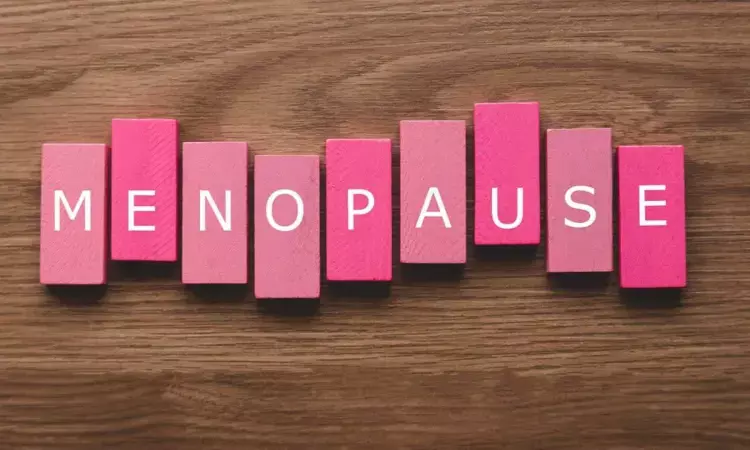- Home
- Medical news & Guidelines
- Anesthesiology
- Cardiology and CTVS
- Critical Care
- Dentistry
- Dermatology
- Diabetes and Endocrinology
- ENT
- Gastroenterology
- Medicine
- Nephrology
- Neurology
- Obstretics-Gynaecology
- Oncology
- Ophthalmology
- Orthopaedics
- Pediatrics-Neonatology
- Psychiatry
- Pulmonology
- Radiology
- Surgery
- Urology
- Laboratory Medicine
- Diet
- Nursing
- Paramedical
- Physiotherapy
- Health news
- Fact Check
- Bone Health Fact Check
- Brain Health Fact Check
- Cancer Related Fact Check
- Child Care Fact Check
- Dental and oral health fact check
- Diabetes and metabolic health fact check
- Diet and Nutrition Fact Check
- Eye and ENT Care Fact Check
- Fitness fact check
- Gut health fact check
- Heart health fact check
- Kidney health fact check
- Medical education fact check
- Men's health fact check
- Respiratory fact check
- Skin and hair care fact check
- Vaccine and Immunization fact check
- Women's health fact check
- AYUSH
- State News
- Andaman and Nicobar Islands
- Andhra Pradesh
- Arunachal Pradesh
- Assam
- Bihar
- Chandigarh
- Chattisgarh
- Dadra and Nagar Haveli
- Daman and Diu
- Delhi
- Goa
- Gujarat
- Haryana
- Himachal Pradesh
- Jammu & Kashmir
- Jharkhand
- Karnataka
- Kerala
- Ladakh
- Lakshadweep
- Madhya Pradesh
- Maharashtra
- Manipur
- Meghalaya
- Mizoram
- Nagaland
- Odisha
- Puducherry
- Punjab
- Rajasthan
- Sikkim
- Tamil Nadu
- Telangana
- Tripura
- Uttar Pradesh
- Uttrakhand
- West Bengal
- Medical Education
- Industry
Laser therapy for genitourinary syndrome of menopause: Emperor's new clothes or a meaningful advance?

Genitourinary syndrome of the menopause (GSM) refers to the symptoms and signs associated with changes in the lower urinary and urogenital tracts following the menopause and is known to affect between 10% and 40% of postmenopausal women, increasing to 66% by the age of 75 years, although only 25% seek medical help.
Systemic hormone replacement therapy may not offer symptomatic improvement in vaginal symptoms, so vaginal estrogen therapy remains integral in the management of women with GSM. The available evidence clearly supports the safety and efficacy of vaginal estradiol and estriol, although the use of vaginal estrogen therapy remains controversial following breast cancer and other hormone-dependent tumours. The current consensus opinion suggests that vaginal estrogen therapy may be used after the failure of non-hormonal treatments in women with a history of estrogen-dependent breast cancer including those taking tamoxifen and they may be considered in women taking aromatase inhibitors after shared decision-making with patient, gynaecologist and oncologist. However, there remains an unmet clinical need for non-hormonal alternative therapies.
Fractionated CO2 laser therapy for the treatment of GSM may offer an efficacious and safe alternative to hormonal therapy and the mechanism of action has been clearly documented using histological studies supported by clinical data demonstrating a meaningful improvement in Health-Related Quality of Life in affected individuals. These prospective cohort studies are also supported by sham trials and systematic reviews and meta-analyses.
However these results are not supported by animal studies (Makova et al., 2021) and two recently reported prospective randomised trials (Li et al., 2021; Page et al., 2022), which have shown no difference between active and sham treatment arms. This raises the question of how these data should be interpreted in clinical practice and whether there is a role for CO2 laser therapy in the treatment of GSM. Current guidelines (RCOG, 2022) suggest that laser therapy may have a role but at present laser therapy should only be used as part of a clinical trial. Is laser therapy ‘the emperor's new clothes’ or a meaningful advance in therapy for GSM? The dichotomy of the available evidence would suggest that we need more evidence for high-quality clinical studies.
Source: Dudley Robinson; BJOG: Int J Obstet Gy. 2022;00:1.
https://doi.org/10.1111/1471-0528.17335
MBBS, MD Obstetrics and Gynecology
Dr Nirali Kapoor has completed her MBBS from GMC Jamnagar and MD Obstetrics and Gynecology from AIIMS Rishikesh. She underwent training in trauma/emergency medicine non academic residency in AIIMS Delhi for an year after her MBBS. Post her MD, she has joined in a Multispeciality hospital in Amritsar. She is actively involved in cases concerning fetal medicine, infertility and minimal invasive procedures as well as research activities involved around the fields of interest.
Dr Kamal Kant Kohli-MBBS, DTCD- a chest specialist with more than 30 years of practice and a flair for writing clinical articles, Dr Kamal Kant Kohli joined Medical Dialogues as a Chief Editor of Medical News. Besides writing articles, as an editor, he proofreads and verifies all the medical content published on Medical Dialogues including those coming from journals, studies,medical conferences,guidelines etc. Email: drkohli@medicaldialogues.in. Contact no. 011-43720751


